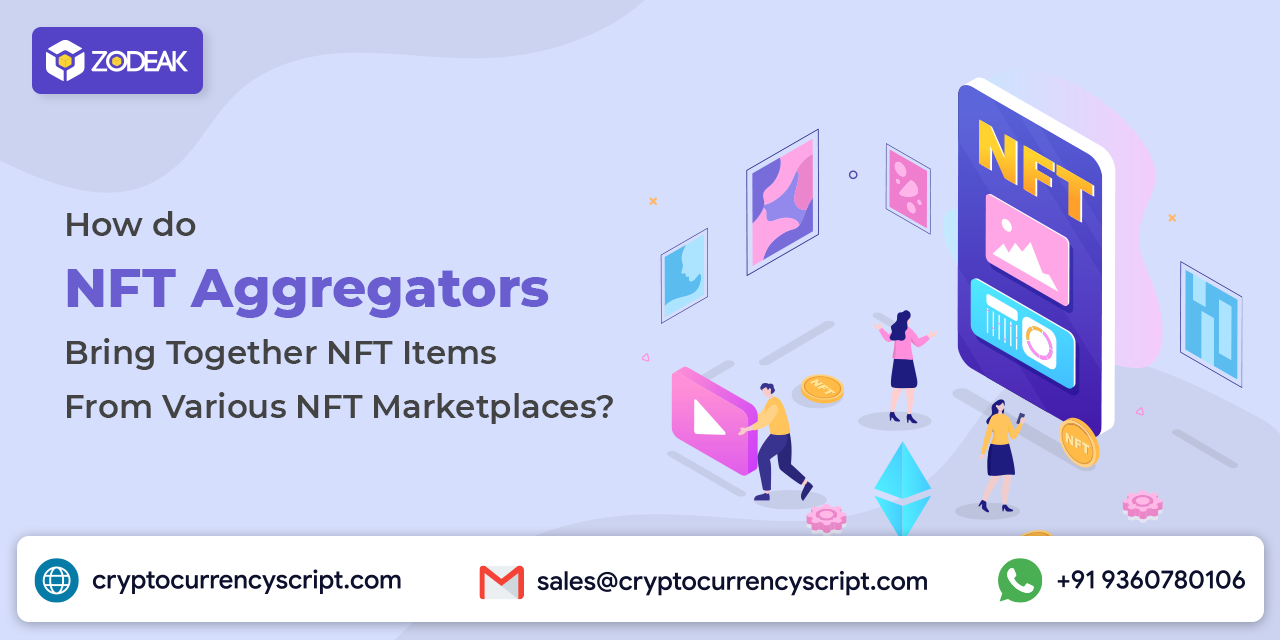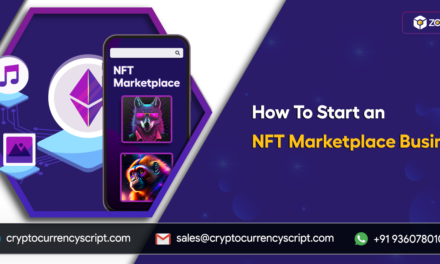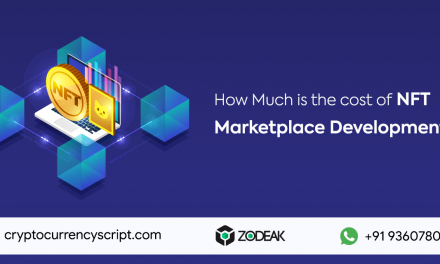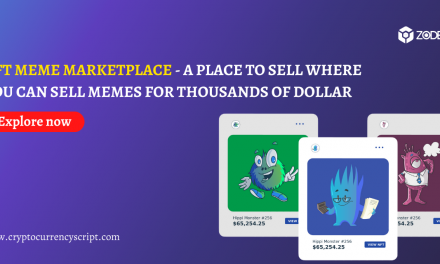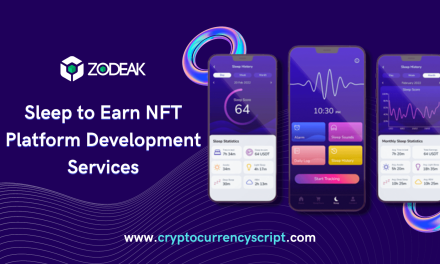Visualize you’re a contemporary digital treasure hunter with your laptop and an insatiable desire to acquire the newest and best NFTs. You’ve set your sights on an elusive work of digital art that will make you the talk of the internet. However, wait! You encounter the maze of NFT marketplaces rather than an Indiana Jones-style quest. You must visit each one to find the reward: They’re all mazes filled with memes, virtual cats, and crypto art.
The hero of our story is the NFT aggregator. Think of it as your trusty companion, a virtual Robin equivalent to your Batman, unifying all those scattered NFT marketplaces with a user-friendly interface. No more wasting time hopping between websites trying to remember if you found that unusual pixelated penguin on Rarible or Opensea.
In this blog, we’ll see how these virtual Swiss army knives work, bringing together NFT items from multiple marketplaces into one seamless whole. Get ready to read, and maybe you’ll find the digital masterpiece you’ve been looking for. Or at least, without sweating too much.
NFT Aggregator
A tool called NFT aggregator brings together various NFT marketplaces into one interface. These platforms enable users to search for different NFTs and compare costs from multiple marketplaces in one place. NFT aggregator platforms facilitate the process of buying NFTs at this stage. Advanced filters make it easy for users to find assets from specific NFT collections.
NFT assets can be sorted by factors such as activity, rank, price, or rarity. In addition, some of them help to search for search for specific wallet addresses. Those who want to find and follow popular NFTs on the network will find this feature very interesting. Bulk purchases are available through NFT marketplace aggregators. As a result, users can purchase multiple assets in a single transaction which increases their convenience.
NFT Aggregator vs NFT Marketplace
An NFT marketplace and NFT aggregator serve different purposes and offer different benefits to users within the digital asset ecosystem. An NFT aggregator serves as a comprehensive platform that collects and offers NFTs from multiple marketplaces, allowing users to inquire, evaluate, and buy digital assets from countless vendors in one place. This streamlined approach saves time and provides a holistic view of all accessible NFTs, enabling well-informed decision-making.
NFT Marketplace is a dedicated online marketplace where users can directly generate, buy, sell, and exchange NFTs. Additional features include exclusive drops, social interaction options, and minting services often found in markets. While marketplaces are great for engaging with a specific ecosystem and leveraging platform-specific advantages, aggregators provide a comprehensive view that helps identify opportunities in the overall NFT environment.
How Does The NFT Aggregator Works?
NFT aggregators aggregate NFT items from multiple marketplaces using various techniques. Among the main components of their operations are…
Integration Of API
Aggregators can connect with multiple NFT marketplaces through APIs. By interacting with the APIs of these marketplaces real-time information can be gathered about NFT listings, pricing, transaction histories, and other relevant details. APIs make it easy for aggregators and markets to synchronize data, guaranteeing that data found on the aggregator platform is current.
Web Scraping
NFT aggregators use web scraping methods to obtain data directly from NFT marketplace websites. It involves using automated scripts to search markets, retrieve relevant information, and update the aggregator’s database. For web scraping search markets, retrieve relevant information, and update the aggregator’s database. For web scraping to be effective, data must be updated frequently. Aggregators often put in place automated schedules to regularly scrape data and maintain the accuracy of their listings.
Database Management
NFT aggregators keep data from various markets in a centralized database. Listings, price changes, and other relevant information will be added to this database regularly. Aggregators ensure consistency in information provision by standardizing data from multiple sources. Part of this is to standardize fields such as NFT titles, descriptions, prices, and types.
Search Filters
Users can filter NFTs based on a variety of factors including price, type, market, and artist. As a result, users can now easily find specific NFTs. Users can add customizable filters to limit the number of results in their search to focus on NFTs that match their specific needs.
Pros And Cons Of NFT Aggregator
Pros
- NFT aggregator platforms aggregate data from multiple markets into a unified user interface. By this, they greatly simplify the search procedure.
- Users have access to multiple catalogs to view NFT collections rather than just one market’s offerings. People who value this option are collectors who track unusual NFTs.
- NFTs can be bought in bulk, so even if the number of NFTs is added to a cart, users only pay gas fees per transaction. This feature can be very helpful, especially for expensive blockchains like Ethereum.
- Among other features, many NFT marketplace aggregators include tools for managing portfolios. Management of NFT assets across multiple marketplaces is facilitated by these technologies.
Cons
- NFT marketplace aggregators can be vulnerable to hacking attempts, just like any other online business. Registering using your wallet is risky because your money and personal information can be stolen.
- NFT aggregators have the right to charge higher fees. Before finalizing the final purchase in the market or an aggregator, one should carefully consider all the associated costs.
- The aggregators assume no responsibility for the items they list. They cannot help if something goes wrong. Consequently, it is necessary to interact directly with the NFT marketplace in such a situation.
- The legality of items listed on other marketplaces is not always confirmed by NFT aggregators. Thus users are at risk of buying phony items on these platforms.
- There’s no denying that portfolio management tools are convenient. However, using them usually requires you to provide your private keys.
Conclusion
NFT aggregators are ideal digital collateral to avoid the confusion of constantly switching between multiple NFT marketplaces. They consolidate lists, synchronize data, and provide a single platform to make your NFT hunt as smooth as butter on hot toast. Abundant, simplistic joy constantly clicks and replaces misplaced treasures.
And yet, there is more! Have an NFT aggregator customized to your needs and tastes. Enter the Zodeak’s Opensea clone script. You can build your own NFT marketplace aggregators using this powerful tool. It’s like having your cake and eating it too, only with virtual pets, cryptocurrency collectibles, and artwork instead of the cake.
So, instead of becoming just another online treasure hunter, why not become a master of the NFT domain? Get your Opensea clone script from Zodeak today, and with humor and a ton of performance, make your NFT dreams come true. Having a whole treasure trove at your fingertips is the only thing that compares to finding a hidden gem in the world of NFTs.

